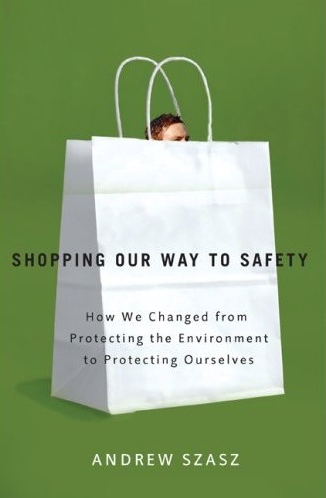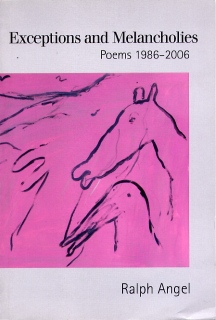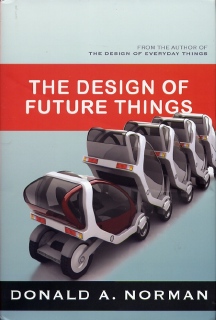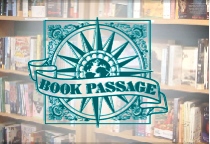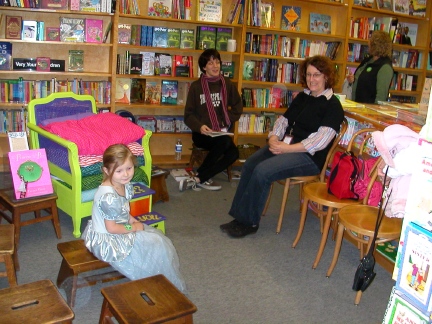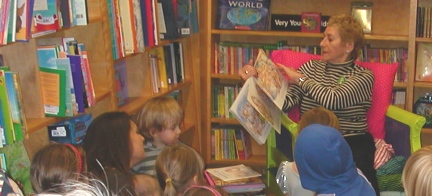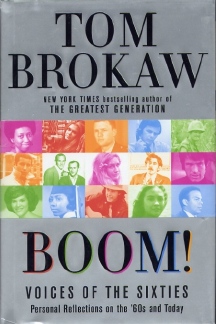|
|
|
|
This Just In...News
From The Agony Column
|
| |
|
11-16-07: A Review of Erika Mailman's 'The Witch's Trinity'
: Horror and History ; Agony Column Podcast News Report : A Phone Interview
with Andrew Szasz
|
Horror and History
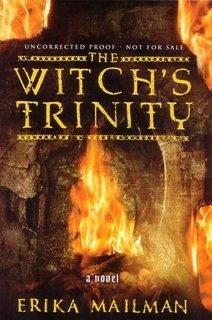 |
|
| Burn,
baby, burn. Don't sweat it. |
Readers know that I like a good horror novel, and that part of what I like
is for a horror novel to actually be scary, and surreal. 'The
Witch's Trinity' by Erika Mailman is both, but it's a lot more as well. Still,
let's focus on the basics.
Mailman is working on ground that has been covered about ten million
times. Witches such as she describes are beyond cliché. But Mailman
uses visionary prose to immerse the reader in the perceptions of a character
who truly finds witches both believable and terrifying. It's a daring move
but one that utterly succeeds simply by virtue of great writing. As a horror
novel alone, 'The Witch's Trinity' is a total success.
But Mailman does more than just immerse and frighten the reader. She also
manages to pack a lot of historical reading pleasure into this novel, offering
the reader the chance to understand more than the characters do about their
own lives. The historical hindsight thrills here are as rewarding as the
moments of sheer horror; moreover they bolster one another. I've
reviewed the novel in-depth and in my standard-issue format here. I'd get searching
now for signed firsts if I didn't have one already. And maybe lay off the
pork for while.
|
Agony Column Podcast News Report : A Phone Interview with Andrew Szasz : 'Shopping Our Way to Safety: How We Changed from Protecting the Environment to Protecting Ourselves'
|
|
Mine
shaft gap! Mine shaft gap! We must not allow a mine shaft gap!
I feel greener already. |
This literally just
in – it's 5:17 PM PDT here in Aptos, California,
and I'm looking out at my backyard thinking how easily I could put in a
fallout shelter. I'm also thinking about what that has to do with all the
bottled water in my garage, in the kitchen cabinets, all the organic foods
on the shelves – because I just had a brief conversation with Andrew
Szasz (pronounced "saws") about his book, 'Shopping Our Way to
Safety: How We Changed from Protecting the Environment to Protecting Ourselves'.
How can you not love a book that discusses the "inverted quarantine" and
the fallout shelter panic of 1961? Well of course you must, and I trust
you'll understand that unless
you listen to this MP3 interview immediately, we are in imminent peril
of succumbing to a mine shaft gap – and
WE MUST NOT ALLOW A MINE SHAFT GAP! Or to have our precious bodily fluids
poisoned.
|
| |
|
11-15-07: Ralph Angel, 'Exceptions and Melancholies', Alta Ifland 'Voice of Ice' ; Agony Column Podcast News Report : A Conversation with Ralph Angel and Alta Ifland
|
Poetry Santa Cruz at the Capitola Book Café
The quality of writers
you might find traveling through, or living in your city is likely to be
much more amazing than you might
expect. Take for example last night's extravaganza at Capitola Book Café.
I was privileged to sit down and speak with two poets for Poetry Santa
Cruz ; Alta Ifland, a Romanian who writes in French and
English in her first book of poems, 'Voice of Ice' (Les Figues Press
; November 2007 ; $15), and Ralph Angel, who just won the 2007 PEN USA
Award
for 'Exceptions and Melancholies: Poems 1986–2006' (Sarabande Books
; January 2007 ; $125.95). Their casual, engaging demeanor seemed to me
to be highly understated given the quality of their written works. But
talent is relentless. It emerges no matter what the environment. Ifland
and Angel may come off like ordinary, smart nice people in person; on the
printed page it is quite another matter. There, it is all literary fireworks.
Dark literary fireworks.
Poetry Santa Cruz
and the Capitola Book Café are the reasons this
happened, and I have to give them credit. For Poetry Santa Cruz, Len Anderson,
a physicist who spent sixteen years working for Measurex, is the publicist
and so far as I can determine, the de-facto leader. "Poetry
Santa Cruz," the bessditge tell us, "is a nonprofit organization
incorporated in the state of California. We are unpaid volunteers working
to nurture the poetry community and to bring poetry to the larger community
in Santa Cruz County. We present poetry readings, craft workshops for poets
and provide information on poetry events and selected other events which
may be of interest to the community." One can imagine that this sort
of thing might spread; why not a "reading Santa Cruz" or a "Fiction
West Covina"? Stranger things have happened. And both Ifland and
Angel have probably written about them.
Angel's book is
published in the classic poetry format; a smallish trade paperback
with a muted cover image. His poetry is anything but muted. He
taps into the surreal, jarring dream-while-awake imagery that our minds
are only barely aware of capturing for just a moment. Reading his work
called to mind Sam Adams lecture at the Singularity Summit, where he
detailed the petabytes of data that we take in every hour of the day
via sight and
sound. Adams suggested that we use a combination of superstition and
forgetfulness to manage all the information, that we were tossing out
some memories while
holding on to others even though they were superstition, first encounters
with something that may have been an illusion because it has no backing
history. Angel's work seems to sift through that mountain of data and
pluck out the language that describes the parts of our lives we don’t
really have time to notice, let alone contemplate. His language is
angular; it
slips between the crevices of everyday experience and then twists open
the wounds, the wonders of each moment of our lives. Language makes life
fresh and fearful. Ultimately, there is hope in the clarity he evokes.
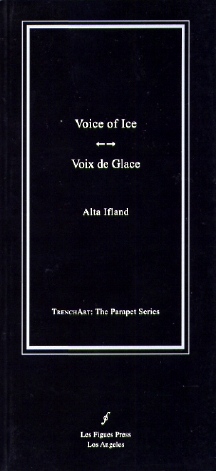
|
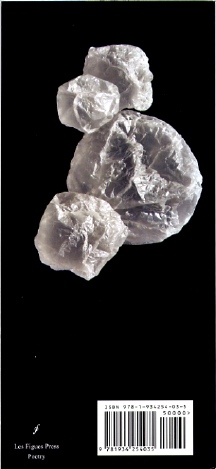 |
Striking
design from Les Figues Press for Ifland's first book of
poetry. |
Ifland is not your normal poetry experience. Her book, 'Voice of Ice'
has a striking vertical design that instantly made me want to buy it.
Inside,
each poem is printed in French on a left page and in English on the facing
right page. Ifland describes her work as prose poems, although these
days they might be tagged as "flash fiction." Forget the label;
the work is dark, rather frightening and very surreal. "Drinking
Oblivion", "The
Louse" and "The cat, the mouse and the Merlot" seem to
coalesce out of nightmare into the written word. Ifland's prose is certainly
far
too musical to be mere flash fiction. She may eschew the broken line,
but she does write songs, fast flights of notes from a frightened, fractured
mind that has seen more than its share of horror. Those who admire Jeff
VanderMeer's poetry and flash fiction will find a lot to like here.
And this would be precisely why you want to reach out beyond what you
think you want to read. Even though the literary world has undergone
a celebrity
transformation with big-money authors preening like rock stars, the process
is not yet complete. You can find raw talent there on the printed page
with relative ease. The writing process itself is a help here. By definition
a one-man band, writing keeps mushy-mouthed businessmen out of the lineup
until you reach the top rungs. Even then, you have a hope of finding
a bestselling writer who is also a potent craftsman and artist. Strip
away
the top layer of noise and bombast and you'll be able to go to your suburban
book store on a quiet Tuesday evening and meet award-winning and award
deserving poets. You can pick up their work with ease. Open the books,
turn the pages and immerse yourself in words. More amazing than you’d
expect.
|
Agony Column Podcast News Report : A Conversation with Ralph Angel and
Alta Ifland : Reaching Inward
I spoke with Angel
and Ifland for a very short moment before they appeared at Capitola
Book Café; we talked upstairs in the headbanging room
of the Captiola Book Café. Headbanging, because it is an attic and
there is a nice water pipe at forehead height that I've knocked my noggin
on at least three times before I did so once again, last night. Ifland
arrived first, and we talked a bit about her homeland and her three-language
writing career. Angel arrived a few minutes later and joined us. I managed
to get them both talking about their writing. Two
poets, recorded in this MP3, ready for your ears. Language and music – and language as music.
|
| |
|
11-14-07: Donald A. Norman Foresees 'The Design of Future Things'
; Agony Column Podcast News Report : A Conversation With Bookseller Elaine Petroccelli of Book Passage
|
Everyday, Now and Forever
|
|
This
piece of tecch looks pretty scary to me. Like a people shredder.
|
I don’t know
that I agree with everything that Donald A. Norman has
to say in 'The Design of Future Things' (Basic Books ; November
5, 2007
; $27.50). But I do know that what I read made me think very carefully
about both his assumptions and mine with regards to man's relationships
with his creations. Everyday we use stuff to do stuff. That's as far
as our thoughts go, with good reason. We have lives to live. We neither
need
nor want to spend too much time thinking about how we interact with the
increasingly complex automated ecology that surrounds us. Red lights
point one way, green lights the other. We stop, then go, hopefully
not at the
same time.
Hopefully. Donald Norman has been fulminating about our helper-machine
environment for some twenty years. Back in 1988, he started with 'The Psychology
of Everyday Things', his first look at the importance of design and interaction.
That book was transformed into 'The Design of Everyday Things' in 1990,
and it's become something of a standard for ergonomics and industrial design.
But that was back in the past; we're now identifiably living in the future,
and a big part of that future involves automation that seems smart but
is often the result of uninformed design principles – at least, according
to Norman. "Designers tend to focus on the technology," Norman
writes, "attempting to automate whatever possible for safety and convenience.
Their goal is complete automation, except where that is not yet possible
because of technical limitations or cost concerns." I don't know that
this is always the case, but I do know that it's a case I might not have
considered had I not picked up Norman's intelligently written and argued
book.
Norman is nothing if not well-informed. He cites the work of both Charles
Stross and Neal Stephenson, as well as more than 20 pages of recommended
readings, references and notes. And he certainly makes you think, as when
he goes right up against my favorite technology of all time. "Two
thousand years ago, Socrates argues that the book would destroy people's
ability to reason." Of course, Norman follows on with Socrates impeccable
reasoning and then extends it into our own machine age. We're surrounded
by machines that use limited AI to make decisions for us. He cites the
example of a British motorist trapped in a traffic circle for fourteen
hours by a new feature on his car called "Lane Keeping," and
it is indeed a nightmarish example. But he also talks about the virtues
of the machine/human interaction in the Segway, which has thus far failed
to change the way anyone does much of anything.
Regardless of whether or not you agree with all his conclusions, Norman
is clearly a fascinating thinker with an agile mind that he has aimed at
problems that are seemingly invisible because of their ubiquity. He argues
for augmentation as opposed to automation, and his thoughts seem tailor-made
for a presentation at the next Singularity Symposium. He perfectly expresses
the frustration that we feel over the inability of so-called expert systems
to take the next step, even a baby step towards what we now call AGI, or
Artificial General Intelligence. We want our expert systems to learn things
beyond the purview of their design. We don’t want smart cars; we
want smart design. Norman's book epitomizes the thought behind Dr. James
Hughes comment in my interview with him at the Singularity Symposium; "...you
don’t really want to have an argument with your toaster about whether
it is going to give you toast in the morning."
As befits a smart man writing about smart design, Norman has kept his own
book smartly designed. It's short and to the point, and it's also tremendously
entertaining. All the brilliance in the world won’t do a whit of
good if nobody wants to read it. Norman writes a book that engineers can
use to inform their industrial design as well as a book for those who are
forced to use stuff. Particularly interesting is the "Afterword: the
Machine's Point of View", in which he undertakes to speak with several
machines. He interviews Archiver, which, "resides on a distributed
set of powerful computers in a process called 'mesh computing.'" It's
an effective use of the science fiction genre to explore a real-world problem.
But unfortunately, 'The Design of Future Things' isn’t science fiction;
this is the future we live in. And argue with.
|
Agony Column Podcast
News Report : A Conversation With Bookseller Elaine Petrocelli of
Book Passage : Writers Aplenty, Events Galore
I just got off the
phone with Elaine Petrocelli of Book
Passage, and what an incredible story
she has to tell you. This is a bookstore that has,
she tells me, three events every day! Unlike many of the bookstores
I talk to, Book Passage is a general interest bookstore that manages
to
beat off
the chains on their own ground, mostly by hosting a relentless series
of events with top-notch authors, many of whom live nearby in Marin County.
You
can hear the MP3 of our conversation here, and find out why you want
to visit their website. No, I'll tell you why. With all those events,
they have a huge stock of signed books that apparently do a bang-up business.
So, next time you miss an author who comes to tow, no need to miss the
book; check out their website.
And don’t blame me for all the money
you end up spending! Blame me, however, for the piles of books.
|
| |
|
11-13-07: Kage Baker Buckles Up to Swash Again ; Agony Column
Podcast News Report : Live from Shakespeare Santa Cruz The Princess and
the Pea "Pea Chair Tour" at Capitola Book Café
|
'Or Else My Lady Keeps the Key'
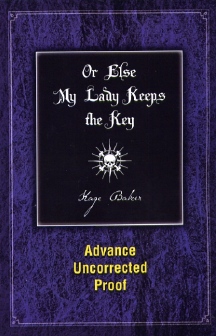 |
|
| I
suspect the lettering may remain intact. |
Hot on the heels of 'The Maid on the Shore' by Kage
Baker, first published
in last year's 'Dark Mondays' from Night Shade Books, comes 'Or Else
My Lady Keeps the Key' (Subterranean Press ; April 2008 ; $35), another
pirate adventure from the always adventurous Baker. John James has just
popped off the ship captained by Henry Morgan in 'The Maid on the Shore',
and he's decided to give the pirate biz the ol' heave-ho. Turns out that
it's not such a hot prospect. Oh sure, there's adventure, even a zombi
to spice things up now and again, but at the end of his voyage, John
James has about fifty pounds, and well, bricklaying pays better. All
he has to do is deliver a note from a dead man to the dead man's mistress.
And you can imagine how that goes.
This is, after all, Kage Baker. James is made an offer he can't refuse,
or at least for an amount of money he cannot in good conscience allow to
pass him by. And after all, it is only one small trip to recover a potential
fortune. Joined by clerk Winthrop Tudely, who soon sheds his meek demeanor,
and Sejanus Walker, a black freedman, and Mrs. Waverly "John James" sets
forth on the Harmony to encounter everything but.
Baker is a master at creating mischievous mayhem, at orchestrating adventure
and comedy and the supernatural in a manner that is pleasing to the mind.
If you're one of the many readers like myself who consider the time they
spent reading Tim Powers' 'On Stranger Tides' a simply wonderful reading
experience, then I'd heartily suggest signing up for both 'Dark Mondays',
if you've not already done so, and the forthcoming 'Or Else My Lady Keeps
the Key'. It's the usual limited, deluxe hardcover edition for $35 a pop,
which doesn't seem particularly dear to me. One might be tempted to call
'Or Else My Lady Keeps the Key' a novella, and indeed the SFWA may enforce
such a perception based on word count and what not, but the fact is the
ARC I have is 184 pages in an 8.5" by 5.5" format. Seems pretty
short-novelish to me, and I like a good short novel. A weekend read is
always a delight, especially as the evenings grow short; though by the
publication date, we should be well into spring. Still, if it is too chilly
to sit outside, stay inside by the fire and warm yourself with fine words
in a fine book.
|
Agony Column Podcast News Report : Live from Shakespeare Santa Cruz The
Princess and the Pea "Pea Chair Tour" at Capitola Book Café :
Creating a New Generation of Readers
|
|
| Princess
Maria (left) Dana Werdmuller, (right), her daughter (center).
And of course, the Pea Chair. |
Well, in just a
few minutes, I'm going to the Capitola Book Café to
see what’s what with the Shakespeare Santa Cruz "Princess
and the Pea" chair tour. You can imagine what a delight it was to
announce this on the radio. It took a bit of doing to work my way through
the prose
so that I didn't jump up and down on the obvious double-entendre. But
I'm curious about what SSC is doing and what I might hope to find. I'll
report
back shortly and you
can enjoy the MP3 report I assemble before it gets
aired on KUSP. I just wish that
Hans Christian Andersen had chosen to go with beans, as it would have
made my radio copy easier to read. But "the Princess and the Bean" doesn't
have the same ring to it; moreover there's Jack and his Jolly-Green-Giant
peastalk. Or I guess it's a beanstalk.
|
|
| Billie
Harris warns of the dangers that can occur when you have too
many monkeys jumping in the bed. |
OK, now I'm not only back but I've edited the audio – oh so lightly –
for your enjoyment, and there can be nothing grander for any reader than
to see young readers in the making. I talked with a potential princess
who proved to be the Real Deal, and I talked to Billie Harris, who comes
to Capitola Book Café each Monday to read for children. In addition,
I talked with Dana Werdmuller, the Marketing Director for Shakespeare
Santa Cruz, and a very special reader who arrived as part of four generations
of readers who were attending the event. In fact, one of them was indeed
the Actual Princess who sat in the chair.
|
| |
|
11-12-07 : A 2007 Interview with Tom Brokaw
|
"It troubles me..."
I'll let Tom Brokaw do
most of the talking. I frankly didn't expect to interview him; I thought
the more senior types at KUSP would line him
up when he came to Santa Cruz to talk about his new book, 'Boom! Voices
of the Sixties'. But this did not come to pass. I even expressed a mild
interest in talking with him, but again thought as I left the station
that I probably wouldn’t have time to set it up.
But the unexpected
intervened and I returned home to find an email enquiring if I wanted
to speak with him. Even then, I didn't expect much would come of it,
but I said "Yes," and then found myself in a swirl of activity,
plowing through the book and plastering it with stickies. First I talked
to him on the phone, and then last Thursday, in an event sponsored by
Capitola Book Café, I spoke to him in person, upstairs, in the
so-called "crying room" of the Rio Theater in Santa Cruz, California.
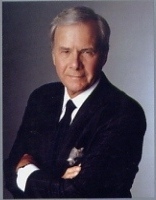 |
|
| From
the back cover. |
Nobody was crying
then. No, Tom was signing stock, lots of stock, and I helped, pitching
books and slapping "Autographed" stickers
on them. When we finished, we sat down and chatted about the oddments
in 'Boom!" – his connection with Bob Haldeman was probably
the most disconcerting.
You can hear the MP3 or the RealAudio version.
And you can decide for yourself on how history will view this history,
and whether or not we shall learn from our experience, or repeat it – again.
|
| |
|
|




